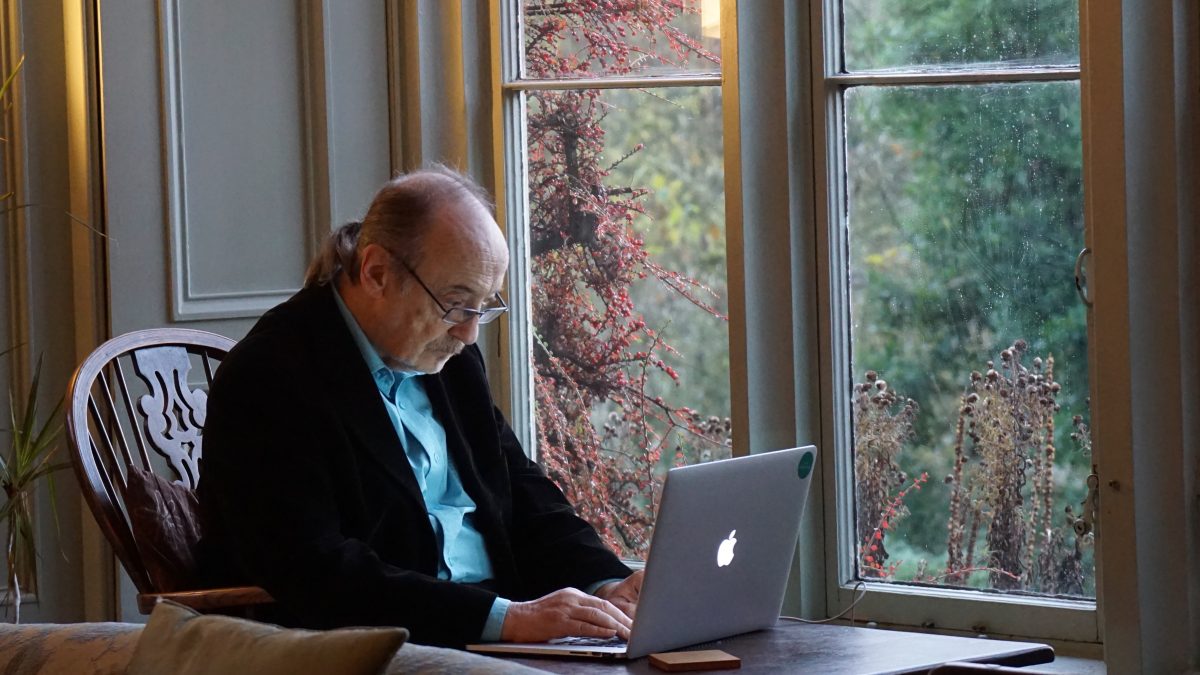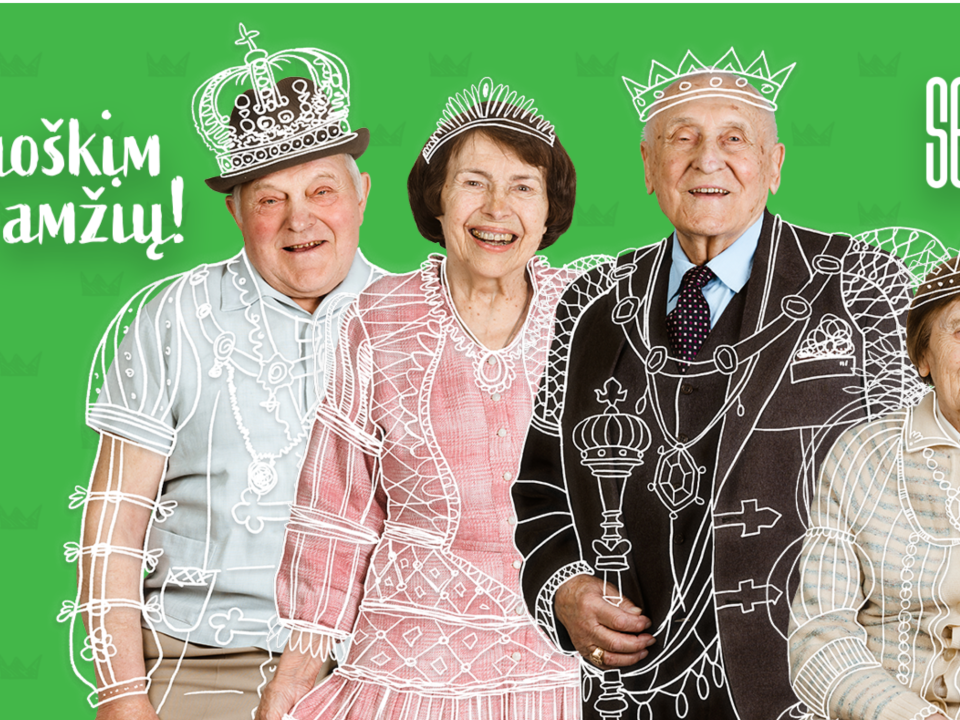
Sveikas ir laimingas senjoras: kokia mityba padės to pasiekti?
June 20, 2022
Karščių iššūkiai senjorams: patarimai, kaip išvengti karščio sukeliamų ligų rizikos
2022 August 29Smart devices and online services are becoming an integral part of our daily lives. While representatives of the younger generation easily manage to adapt to modern technologies, seniors can often face more serious challenges. Therefore, Vilma Sališienė, social worker of the "Senior" program of the National Institute of Social Integration, shares tips on how relatives can help seniors to get used to technology.
The inability to use communication technologies becomes a problem for both people of retirement age and their relatives, says Vilma Sališienė, social worker of the "Senior" program. According to her, it is necessary to understand that the most common reaction of "rejecting" technology for seniors is due to the fear of making a mistake.
"Seniors want to be independent, but often when they pick up a smart device with many functions and applications, they don't know what to do with it and where to start. This often awakens the fear of making mistakes and lack of confidence in one's own strength. However, for seniors and their relatives, especially those who live in different cities or even countries, smart devices can become the only possibility to maintain communication, so it is very important to be able to gently help seniors get used to these technologies", says V. Sališienė and shares recommendations.
Ask if the senior is interested in technology
First of all, the social worker advises to find out the attitude of the elderly relative towards smart technologies.
"If you feel resistance, tell your loved one as simply as possible about the different tools and their functions that are most relevant to them - for example, the ability of a smartphone to make phone calls through cameras or to read various news portals for free on a tablet, as if simply flipping through newspapers," advises V. Sališienė.
Listen to the senior's needs
Find out the senior's needs, advises the social worker. Does he need online banking, social networks, news portals, online television services or other computer literacy skills.
"Not all seniors may be enthusiastic about the possibilities offered by technology from the very first moment. Therefore, you should not press them, for a start you can limit yourself to the simplest phone function lessons - how to send a message, call relatives, take photos. These steps alone can in the long run strengthen their self-confidence and awaken the desire to continue learning," says V. Sališienė.
Find out how a senior wants to learn
When a senior decides to introduce modern technology into his life, the social worker recommends discussing how he wants to learn.
"Perhaps he wants to improve his skills at home with your help, or maybe he will be interested in attending free computer literacy training for seniors organized by municipalities." If he wants to go to training, help him register there. If he does not dare and wants to study with you, make a joint schedule, try not only to explain everything simply, but also to give as much as possible to the senior to try in practice. It may take time, and to make it easier, suggest that the senior write down everything he learns so that he can repeat it later," advises V. Sališienė.
Help keep you motivated
Learning for the sake of learning can quickly get boring, says the social worker of the "Senior" program. Help him learn skills that will brighten his everyday life.
"If a senior is interested in politics, show him how easy it can be to be the first to find out all the latest information on news portals. If you like knitting, teach yourself how to search for new knitting methods on the Internet - for example, look for video tutorials. Video chats with loved ones or sharing moments captured in photos can be the most motivating to learn how to use technology," reminds V. Sališienė.




